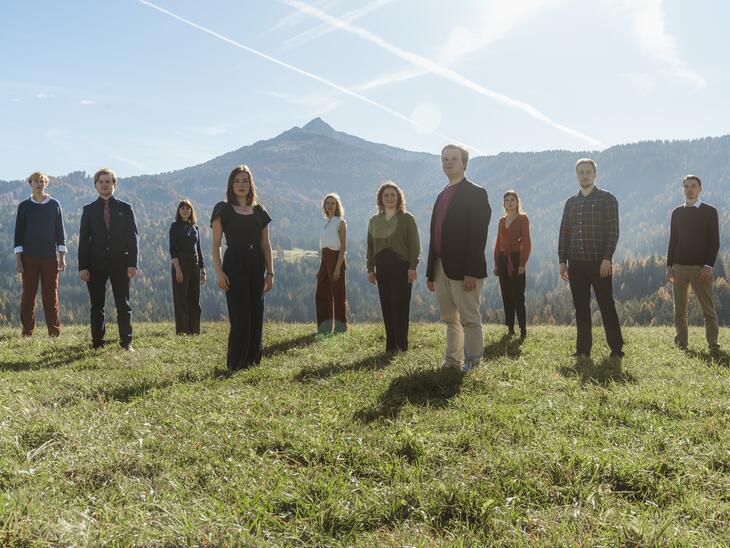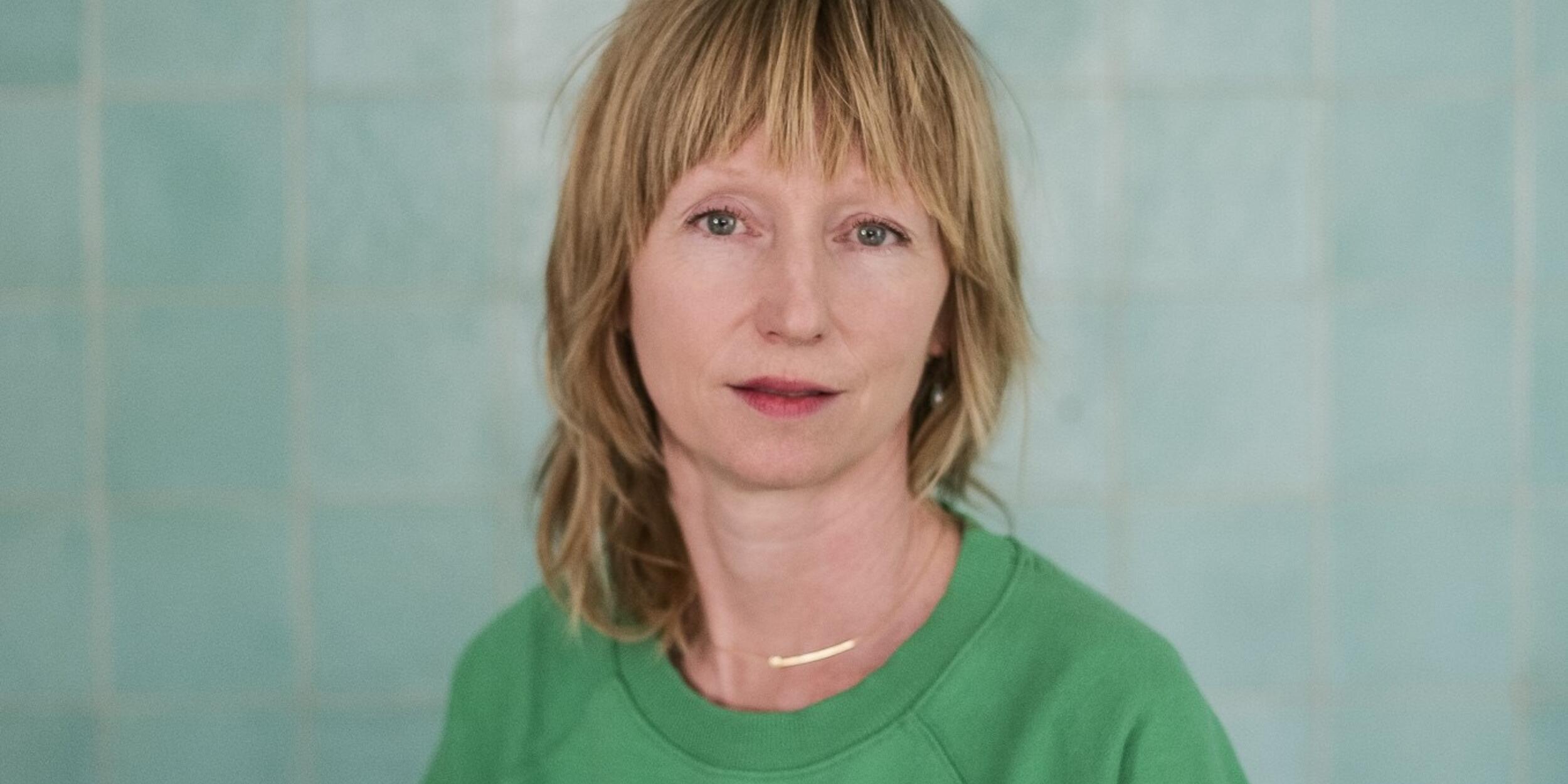
A conversation with Benedikt Gurtner about a cappella singing, working in an ensemble, the importance of music for children and society, and the social value of making music together.
International Mozart Competition - Piano: Livestream final & award ceremony on 19 February from 7 p.m.

Florentine Klepper has been Professor of Music Drama (scenic) at the Department of Opera & Music Theatre since the summer semester 2024. In the interview, she provides insights into her working methods, previous and ongoing projects and shares her thoughts on the various facets of music theatre.
Since the summer semester 2024, you have held the professorship for music-dramatic performance (scenic) in the Department of Opera & Music Theatre. What wishes and expectations do you have coming to the Mozarteum University?
On my professional path, I have often benefited from the support of other people, for which I am very grateful. After twenty years of professional experience, I would like to pass some of this on to the next generation. At the same time, I hope to reflect on social transformation processes in dialogue with students and colleagues and explore together what challenges the music theatre of the future will face and what questions this raises for us as creators.
Are there any previous directorial works at other theatres, or people or stages in your life (including non-artistic ones) that have particularly shaped you as a person and artist?
My interest as a director lies in the sensual telling of stories, both in musical theatre and in drama. Important stages for me have included the Basel Theatre, the Graz Opera, the Frankfurt Opera, the Deutsches Schauspielhaus Hamburg, the Semperoper Dresden, the Opéra de Dijon, the Salzburg Easter Festival, the Braunschweig State Theatre and the Kassel State Theatre. It is the variety of private and professional encounters that have characterised my work over the years. I still consider it a special privilege to deal with content and issues that affect us as a society within an artistic collective. Over the years, this has led to an intensive artistic exchange with many artists and production participants.
You are closely associated with the Junges Theater Rosenheim, which not only creates productions for young audiences, but also explicitly produces with young people and involves them in the artistic processes. Is this an approach that will also characterise your work at the university? To what extent will these experiences be visible and tangible?
The JTR is a collective of artists from the region who have set themselves the task of paying special attention to young people with interdisciplinary projects. Participation and interaction are valuable ways of working to get in touch with our audience. Encounters take centre stage. Children and young people should be allowed to get involved and experience that they have a voice. Perhaps the overlap with my future work at the university lies in respectful dialogue at eye level. And in the basic attitude that I myself not only teach, but also continue to learn.
What particular challenges and opportunities do you see in working with young singers?
In addition to musical talent, singers also need a keen awareness of their own physical presence, both in relation to other performers and in relation to the space and audience. For me, training in this area therefore includes, on the one hand, teaching the craft of role work, body language, timing and artistic expression. On the other hand, it involves strengthening the confidence in the performer's own intuition, encouraging a spirit of experimentation and showing new perspectives. Because the more independently singers can develop their role, the more confident and independent I experience them in the rehearsal process. I see my future role at the university as mediation work and an interface, as I have regularly worked with young professionals and am very familiar with the different needs of singers at the beginning of their careers. I am also familiar with the requirements of a regular opera company and have often experienced how demanding and challenging the start of a career can be. I would therefore like to be able to support young artists during their training in order to give them the best possible start to their career.
As a guest director, you have already staged Benjamin Britten's The Turn of the Screw together with Kai Röhrig and the students of the opera class in January 2023. How did this "first contact" come about, which (among other things) ultimately led to your appointment as a professor?
In the past, I have been entrusted with both productions with singing students and mentoring of directing students at the University of Music and Performing Arts Munich, so I was very happy to accept the production request from the Mozarteum last year. There is an impressive working atmosphere here at the university, which offers students the opportunity to try out their skills and gain their first stage experience under professional and, in my opinion, ideal conditions. The experience was so positive for me personally that I have decided to take on a teaching position in the future.
Your last directorial work, Wolfgang Rihm's Hamletmaschine, premiered at the Staatstheater Kassel at the beginning of March. At the same time, you have been working for several weeks on the directorial concept for Verdi's Falstaff, the next production of Kai Röhrig's and your opera class, which will be released in May. Can we take a brief look behind the scenes of the two productions?
In our work on The Hamlet Machine (co-directed by Valentin Alfery), which was conceived by the Staatstheater Kassel as an interdisciplinary production for drama, music theatre and dance, the central question, in addition to the musical content, was how we can make a very complex and reference-rich work accessible and sensually tangible not only for specialists but also for a broad audience. Opening up such works is a balancing act between artistic realisation and communicating content.
Our Salzburg Falstaff clearly focusses on ensemble work with the students. We tell the story in a common room of a student hall of residence: Falstaff returns there after a long absence and upsets everything, calling the system into question. The resulting interaction between individual characterisation and group dynamics is an important experience in the rehearsal process. In this production, Kai Röhrig and I are interested in exploring the tension between Verdi's music and Arrigo Boito's congenial libretto based on a Shakespearean comedy and transforming it into a joyful performance with the singers. The rehearsals are great fun and I'm really looking forward to continuing to work with the class.